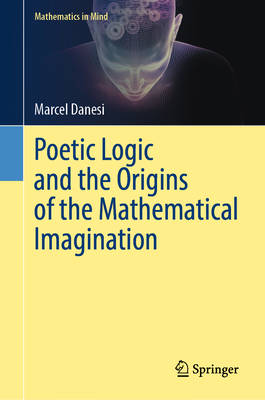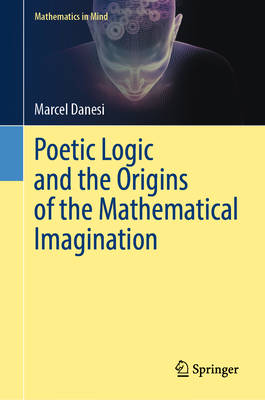
- Retrait gratuit dans votre magasin Club
- 7.000.000 titres dans notre catalogue
- Payer en toute sécurité
- Toujours un magasin près de chez vous
- Retrait gratuit dans votre magasin Club
- 7.000.0000 titres dans notre catalogue
- Payer en toute sécurité
- Toujours un magasin près de chez vous
Poetic Logic and the Origins of the Mathematical Imagination
Marcel Danesi
126,95 €
+ 253 points
Format
Description
This book treats eighteenth-century Italian philosopher Giambattista Vico's theory of poetic logic for the first time as the originating force in mathematics, transforming instinctive counting and spatial perception into poetic (metaphorical) symbolism that dovetails with the origin of language. It looks at current work on mathematical cognition (from Lakoff and Núñez to Butterworth, Dehaene, and beyond), matching it against the poetic logic paradigm. In a sense, it continues from where Kasner and Newman left off, connecting contemporary research on the mathematical mind to the idea that the products of early mathematics were virtually identical to the first forms of poetic language. As such, this book informs the current research on mathematical cognition from a different angle, by looking back at a still relatively unknown philosopher within mathematics.
The aim of this volume is to look broadly at what constitutes the mathematical mind through the Vichian lens of poetic logic. Vico was among the first to suggest that the essential nature of mind could be unraveled indirectly by reconstructing the sources of its "modifications" (his term for "creations"); that is, by examining the creation and function of symbols, words, and all the other uniquely human artifacts--including mathematics--the mind has allowed humans to establish "the world of civil society," Vico's term for culture and civilization.
The book is of interest to cognitive scientists working on math cognition. It presents the theory of poetic logic as Vico articulated it in his book The New Science, examining its main premises and then applying it to an interpretation of the ongoing work in math cognition. It will also be of interest to the general public, since it presents a history of early mathematics through the lens of an idea that has borne fruit in understanding the origin of language and symbols more broadly.
The aim of this volume is to look broadly at what constitutes the mathematical mind through the Vichian lens of poetic logic. Vico was among the first to suggest that the essential nature of mind could be unraveled indirectly by reconstructing the sources of its "modifications" (his term for "creations"); that is, by examining the creation and function of symbols, words, and all the other uniquely human artifacts--including mathematics--the mind has allowed humans to establish "the world of civil society," Vico's term for culture and civilization.
The book is of interest to cognitive scientists working on math cognition. It presents the theory of poetic logic as Vico articulated it in his book The New Science, examining its main premises and then applying it to an interpretation of the ongoing work in math cognition. It will also be of interest to the general public, since it presents a history of early mathematics through the lens of an idea that has borne fruit in understanding the origin of language and symbols more broadly.
Spécifications
Parties prenantes
- Auteur(s) :
- Editeur:
Contenu
- Nombre de pages :
- 173
- Langue:
- Anglais
- Collection :
Caractéristiques
- EAN:
- 9783031315817
- Date de parution :
- 02-08-23
- Format:
- Livre relié
- Format numérique:
- Genaaid
- Dimensions :
- 156 mm x 234 mm
- Poids :
- 439 g

Les avis
Nous publions uniquement les avis qui respectent les conditions requises. Consultez nos conditions pour les avis.






